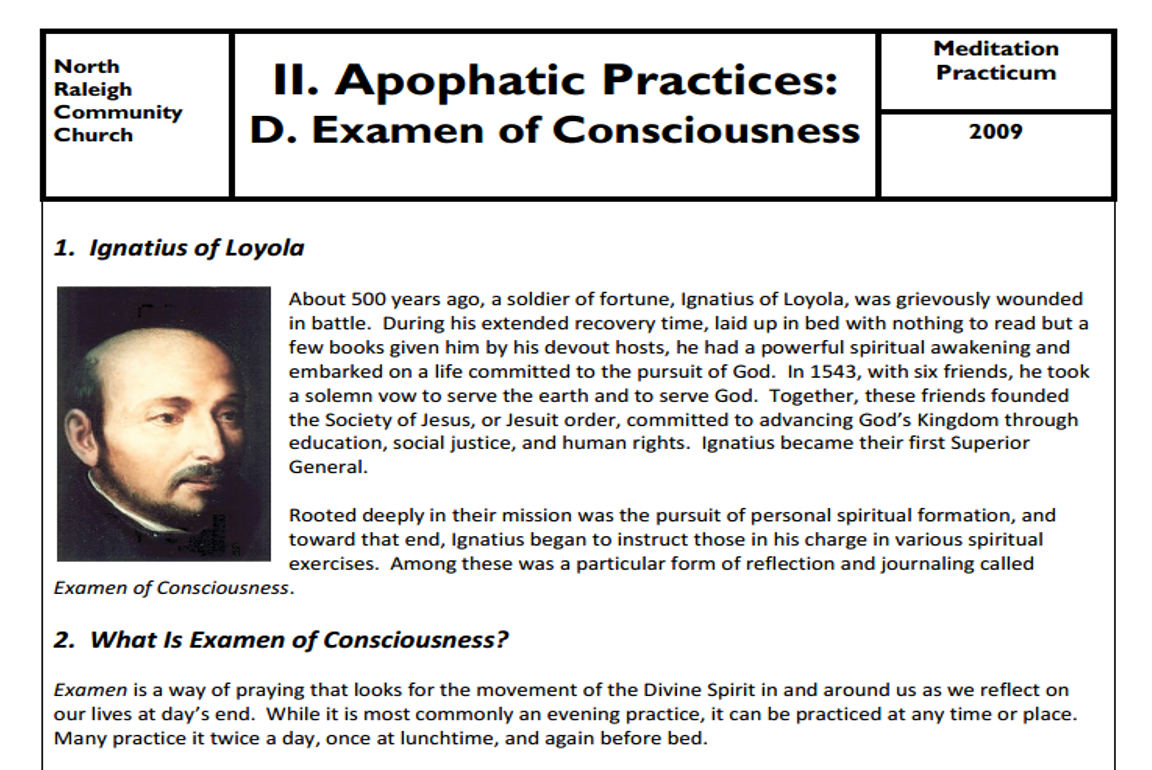 The focus of apophatic spirituality, we’ve seen in these last posts, is to pay attention to the observer-self within us.
The focus of apophatic spirituality, we’ve seen in these last posts, is to pay attention to the observer-self within us.
We all have impulses, thoughts, feelings, instincts, and reactions. It is also true that we tend to have these in a repetitive pattern. Creatures of habit, we tend to think the same kinds of thoughts again and again, have the same kinds of feelings, impulses, and reactions, again and again. Over time, we build up neural pathways in our brains, and habit takes over. Have a reaction to a loved one’s bad behavior enough times, and all they have to do is hint at the bad behavior, and our reaction is primed, ready, and off we go to where we’ve always gone.
Rather than observe this dynamic within ourselves, we tend to say things to ourselves like, “that’s just the way I am.”
– “That’s just my personality.”
– “That’s the way our family handles these things.”
– “We’re just an angry bunch…” or
– “We’re just a diligent bunch; noisy bunch; non-hugging bunch.”
 We don’t usually to stand outside our instinctive impulses in the moment, and watch them. We rarely think to ourselves, “Well, look at me, having that habitual thought/emotion pattern again.”
We don’t usually to stand outside our instinctive impulses in the moment, and watch them. We rarely think to ourselves, “Well, look at me, having that habitual thought/emotion pattern again.”
The starting place of apophatic spirituality is the ability to observe ourselves; our body-consciousness, our ego-consciousness, our instincts, reactions, and familiar, go-to responses.
It turns out, that being awake to the observing-self; being able to monitor our thoughts, actions, and reactions, is a critical step toward spiritual transformation.
When we are able to see our thoughts and feelings, we are much closer to making choices about them.
And so, through the centuries, the Christian tradition (and others as well) have developed practices to help us develop our awareness of the inner, observer-self. Our ancient practices train us to quiet the noise of our body and ego-consciousness.
One of those practices was developed by Ignatius of Loyola about five hundred years ago. He called it examen of consciousness.
 It is a practice of setting aside some moments at the end of each day, to observe… ourselves; the events in which we participated, and our thoughts, feelings, actions, and reactions.
It is a practice of setting aside some moments at the end of each day, to observe… ourselves; the events in which we participated, and our thoughts, feelings, actions, and reactions.
A few years ago, while introducing apophatic spirituality to our community, I did a notebook of brief readings on the subject. One of the entries was an explanation of the ancient practice of examen.
Click below and read about it. It is one of the core practices of apophatic spirituality. You’ll see how regular practice can help awaken us to our inner, observer-selves.
Click here: Examen-of-Consciousness >>